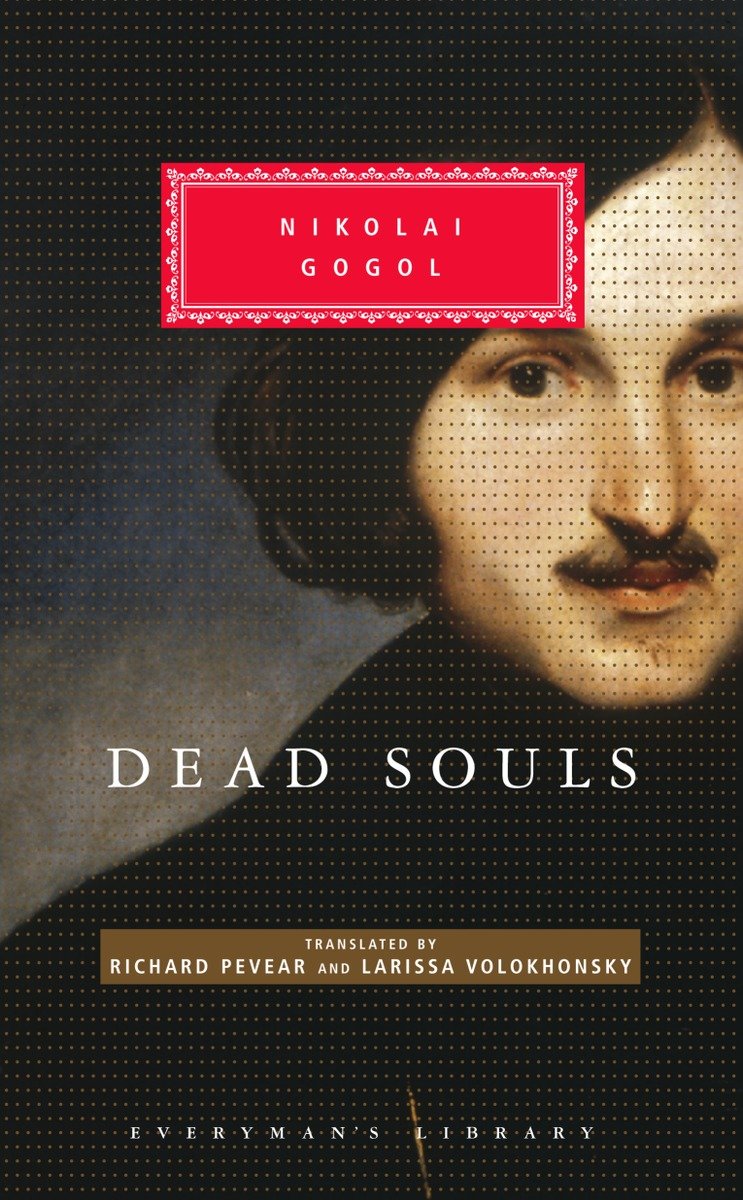Dead Souls: Introduction by Richard Pevear
21.00 JOD
Please allow 2 – 5 weeks for delivery of this item
Description
Nikolai Gogol’s Dead Souls is the great comic masterpiece of Russian literature–a satirical and splendidly exaggerated epic of life in the benighted provinces.Gogol hoped to show the world “the untold riches of the Russian soul” in this 1842 novel, which he populated with a Dickensian swarm of characters: rogues and scoundrels, landowners and serfs, conniving petty officials–all of them both utterly lifelike and alarmingly larger than life. Setting everything in motion is the wily antihero, Chichikov, the trafficker in “dead souls”–deceased serfs who still represent profit to those clever enough to trade in them.This lively, idiomatic English version by the award-winning translators Richard Pevear and Larissa Volokhonsky makes accessible the full extent of the novel’s lyricism, sulphurous humor, and delight in human oddity and error.
Additional information
| Weight | 0.5902 kg |
|---|---|
| Dimensions | 7.8486 × 13.5128 × 21.082 cm |
| by | |
| Format | Hardback |
| Language | |
| Pages | 488 |
| Publisher | |
| Year Published | 2004-9-21 |
| Imprint | |
| Publication City/Country | USA |
| ISBN 10 | 1400043190 |
| About The Author | Nikolai Vasilevich Gogol was born in 1809; his family were small gentry of Ukrainian cossack extraction, and his father was the author of a number of plays based on Ukrainian popular tales. He attended school in Nézhin and gained a reputation for his theatrical abilities. He went to St Petersburg in 1829 and with the help of a friend gained a post in one of the government ministries. Gogol was introduced to Zhukovsky, the romantic poet, and to Pushkin, and with the publication of Evenings on a Farm near Dikanka (1831) he had an entrée to all the leading literary salons. He even managed for a short period to be Professor of History at the University of St. Petersburg (1834-5). Diary of a Madman and The Story of the Quarrel between Ivan Ivanovich and Ivan Nikiforovich appeared in 1934, The Nose in 1836, and The Overcoat in 1842. Gogol also wrote the play The Inspector (1836), Dead Souls (1842), and several moralizing essays defending the Tsarist regime, to the horror of his liberal and radical friends. He lived a great deal abroad, mostly in Rome, and in his last years became increasingly prey to religious mania and despair. He made a pilgrimage to Jerusalem in 1848, but was bitterly disappointed in the lack of feeling that the journey kindled. He returned to Russia and fell under the influence of a spiritual director who told him to destroy his writings as they were sinful. He burned the second part of Dead Souls, and died in 1852 after subjecting himself to a severe regime of fasting. |
Praise for previous translations by Richard Pevear and Larissa Volokhonsky, winners of the PEN/Book-of-the-Month Club PrizeThe Brothers Karamazov“One finally gets the musical whole of Dostoevsky’s original.” –New York Times Book Review“It may well be that Dostoevsky’s [world], with all its resourceful energies of life and language, is only now–and through the medium of [this] new translation–beginning to come home to the English-speaking reader.” –New York Review of BooksCrime and Punishment“The best [translation] currently available…An especially faithful re-creation…with a coiled-spring kinetic energy… Don’t miss it.” –Washington Post Book World“Reaches as close to Dostoevsky’s Russian as is possible in English…The original’s force and frightening immediacy is captured…The Pevear and Volokhonsky translation will become the standard version.” –Chicago TribuneDemons“The merit in this edition of Demons resides in the technical virtuosity of the translators…They capture the feverishly intense, personal explosions of activity and emotion that manifest themselves in Russian life.” –New York Times Book Review“[Pevear and Volokhonsky] have managed to capture and differentiate the characters’ many voices…They come into their own when faced with Dostoevsky’s wonderfully quirky use of varied speech patterns…A capital job of restoration.” –Los Angeles TimesWith an Introduction by Richard Pevear |
|
| Series |
Only logged in customers who have purchased this product may leave a review.






Reviews
There are no reviews yet.